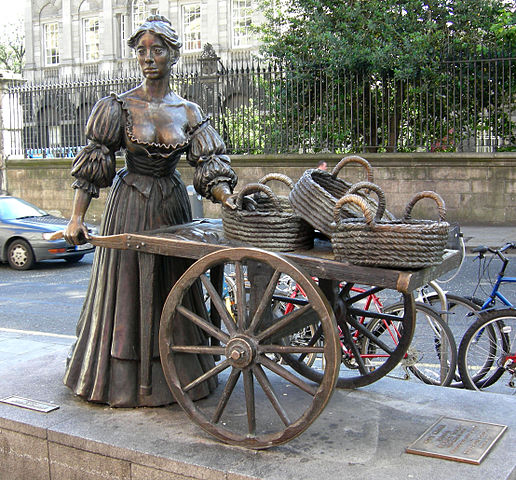- BY Free Movement

Italy and Dublin: Tabrizagh test case
THANKS FOR READING
Older content is locked

A great deal of time and effort goes into producing the information on Free Movement, become a member of Free Movement to get unlimited access to all articles, and much, much more
TAKE FREE MOVEMENT FURTHER
By becoming a member of Free Movement, you not only support the hard-work that goes into maintaining the website, but get access to premium features;
- Single login for personal use
- FREE downloads of Free Movement ebooks
- Access to all Free Movement blog content
- Access to all our online training materials
- Access to our busy forums
- Downloadable CPD certificates
Judgment has finally been handed down in the latest test case on Dublin removals to Italy, Tabrizagh and others v SSHD [2014] EWHC 1914 (Admin) and although it is on any view bad news, there is much in it to consider. In a carefully reasoned and frankly impressive decision the newly made up Laing J dismissed the claimants’ challenge on the facts. This is the first Dublin case to consider the principles in the Supreme Court’s ground-breaking EM (Eritrea) v SSHD [2014] UKSC 12.
The Judge considered that the evidence was not sufficient to meet the Soering v United Kingdom (1989) 11 EHRR threshold, particularly in light of the position of UNHCR and the decisions of the European Court of Human Rights.
 The Judge considered that the First-tier Tribunal would give very significant weight to the first-instance Strasbourg decisions from 2013 which held that challenges to removal to Italy were clearly inadmissible. She considered, perhaps surprisingly in view of the expert Tribunal’s usual approach to findings of fact by the European Court, that the First-tier Tribunal would be “bound to acknowledge” that the European Court was in a much better position to evaluate the kind of evidence under consideration. One can imagine certain judges of the Upper Tribunal spluttering into their cornflakes at that suggestion.
The Judge considered that the First-tier Tribunal would give very significant weight to the first-instance Strasbourg decisions from 2013 which held that challenges to removal to Italy were clearly inadmissible. She considered, perhaps surprisingly in view of the expert Tribunal’s usual approach to findings of fact by the European Court, that the First-tier Tribunal would be “bound to acknowledge” that the European Court was in a much better position to evaluate the kind of evidence under consideration. One can imagine certain judges of the Upper Tribunal spluttering into their cornflakes at that suggestion.
The role of UNHCR remains controversial. UNHCR was very clear in its intervention in EM (Eritrea) that it did not wish to accept the burden of being the final arbiter of which states are in a state of systemic deficiency. Indeed, UNHCR was of the view in those proceedings that the problems adverted to in Italy in the (more sanguine) report of 2012 were capable, approached on a case by case basis, of giving rise to an Article 3 ECHR breach. The Courts have yet to really grapple with the fact that UNHCR is ultimately a political organisation, and that while operating in Italy gives it a close-up view of what is happening on the ground, it may be necessary to factor in the potential implications for that position of a report that is too damning.
There will, in any event, be a further UNHCR report in July. In light of UNHCR’s concern this week that Italian authorities had dumped hundreds of asylum seekers in car parks without food or shoes it may be that a more hard-line approach emerges.

A further interesting part of the judgment is the Court’s consideration of the situation of beneficiaries of international protection, much of the evidence having suggested that their position was particularly dire. On the findings of the Court, the Italian state does not owe a duty under Article 3 ECHR to provide even basic accommodation and support to refugees. So, someone fleeing persecution loses the protection of Article 3 ECHR (as a vulnerable asylum seeker) as soon as it is recongnised that their claim was in fact genuine. Good news: you’re a refugee. Bad news: you’re a refugee who lives in a park.
What is beyond question is that the Italian system for the reception of refugees and asylum seekers is under enormous and growing strain. While the Italian navy spends millions of Euro to save the lives of people making the perilous journey by boat as part of operation Mare Nostrum, set up following the tragedy in Lampedusa, there have already been more migrant landings in Italy this year than in the whole of 2013. The language of the Italian interior ministry is now consistently the language of panic.
The claimants will seek permission to appeal. Meanwhile, we all await the decision of the Grand Chamber in Tarakhel v Switzerland. That is expected to be out in the next month or two and may well be the final answer.
The claimants were represented by a team including Stephen Knafler QC (for Duncan Lewis) and Greg Ó Ceallaigh (for Turpin Miller), as well as Declan O’Callaghan, Phillip Nathan and Keelin McCarthy.
SHARE

